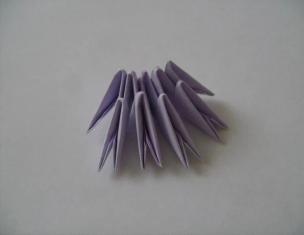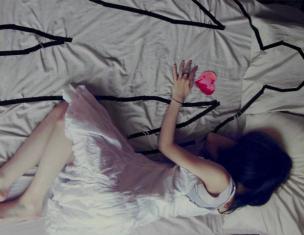Federal National Guard Service Russian Federation invites everyone to take part in creative competition poetry dedicated to the day of remembrance of those who fell on the battlefields - “Feast of the White Cranes”.
To participate in the competition, you must send a work of poetry of which you are the author by October 10, 2017 to the following email address: This email address is being protected from spambots. You must have JavaScript enabled to view it. with the obligatory mark “White cranes”. The letter must indicate contact information: first name, last name, patronymic, age, city of residence.
On October 22, 2017, the works submitted for the competition will be posted on the official website of the Russian Guard for online voting, which will last for 10 days. Based on the voting results, the 3 works that gain the most popularity will be published in one of the central print media.
The main condition for creative works is that the content of the poem corresponds to the content of the White Crane Festival.
In 2009, UNESCO included October 22 – the White Crane Festival – in the international list of memorable events. It is a celebration of solidarity and poetic song about fallen soldiers around the world. The meaning of this memorable date became a celebration of the memory of departed soldiers during various wars around the world, which, unfortunately, continue to this day.
The poet Rasul Gamzatov suggested celebrating the White Crane Holiday. The impetus for writing the poem was a sad event that occurred in Japan, which the poet visited.
In August 1945, hundreds of thousands of people were injured by the explosion of the atomic bomb in Hiroshima. One little girl, who was only 8 years old, named Sadako Sasaki, became a victim of radiation sickness. According to Japanese tradition, if a sick person makes a thousand origami cranes, he will recover. Sadako tried her best to make a thousand paper cranes, but only managed to make 644.
This story struck the poet to the core, and he wrote the poem “White Cranes”.
Initially, this day was celebrated only in Dagestan, but very soon many cities and not only our vast Motherland took up the baton.
Why is the crane the symbol of this poetic holiday? In many cultures, the white crane is the personification of spirituality, peace, light and warmth. In Japan it is the personification of longevity, in China it is a symbol of immortality, in Christianity it is decency and patience, among African peoples it is a messenger of the gods. In the Caucasus they say that the souls of soldiers killed in battle turn into snow-white cranes and rise up. In many cultures, the crane is a mediator between the worlds of people and gods. It is a bright sign of liberation and immortality, symbolizing peace and prosperity.
In 2009, UNESCO included it in the international list of memorable events October 22 - White Cranes Festival . It is a celebration of solidarity and poetic song about fallen soldiers around the world.
The meaning of this memorable date was to honor the memory of fallen soldiers during various wars around the world, which, unfortunately, continue to this day.
The White Cranes holiday was proposed to be celebrated by the poet Rasul Gamzatov, who wrote the poem “White Cranes”.The impetus for writing was a sad event that occurred in Japan, which the poet visited.
In August 1945, hundreds of thousands of people were injured by the explosion of the atomic bomb in Hiroshima. One little girl, who was only 8 years old, named Sadako Sasaki, became a victim of radiation sickness. According to Japanese tradition, if a sick person makes a thousand origami cranes, he will recover. Sadako tried her best to make a thousand paper cranes, but only managed to make 644.
In many cultures, the crane is a mediator between the worlds of people and gods. It is a bright sign of liberation and immortality, symbolizing peace and prosperity.
Initially White Crane Festival celebrated only in Dagestan, but very soon many cities and not only our vast Motherland took up the baton.
The Federal Service of the National Guard Troops of the Russian Federation announced a creative poetry competition dedicated to the day of remembrance of those who fell on the battlefields - "White Crane Festival" .
More than 1,500 poetic works from more than 600 participants took part in the competition. Among them was Masha Shimova, active reader of the village. Energetikov, with his poem “Peace to the world!”. We invite you to get acquainted with competitive work young poetess.
Peace to the world!
On the table, from a checkered piece of paper
A girl collects a crane.
This seems to be the six hundredth
And all that's left for her to do is
Four hundred, and everything comes true!
There will be happiness, friends and health.
Only suddenly the dream breaks,
Like a wave on a stone, on a tombstone.
Life is cruel, maybe like a factory,
And it is ruled by a military idol...
Six hundred forty-four cranes
Shocked the entire sublunary world.
This death seems to be unimportant,
But look at the foot of the monument,
There they spread their paper wings
Already six thousand and four cranes.
I stained my finger with yellow paint,
A boy draws a sun in a notebook.
Sun, house and colored stairs.
Yes, the same one from the children's song.
This boy could maybe
Become a famous artist
Only urgent duty calls
To die for the fatherland in battle.
Yesterday - boys, today - soldiers.
And at just eighteen years old
Guys are dying from bullets
An actor, engineer and poet dies.
That's why we constantly ask
So that there is no war in the world.
“Peace to the world,” whisper the ears of corn in the field.
We don't need ruin!"
"Peace to the world!" - the children exclaim.
"Peace to the world!" - the grass rustles.
"Peace to the world!" - suddenly the wind picks up
And carries words across the Earth.
"Peace to the world!" - the forests echo the wind.
And billions of sun balls,
Billions of white cranes
The dream flies to the skies.
You can read the competition works of other participants on the website of the Federal Service of the National Guard Troops of the Russian Federation

The Federal Service of the National Guard Troops of the Russian Federation invites everyone to take part in a creative poetry competition dedicated to the day of remembrance of those who fell on the battlefields - “The Holiday of the White Cranes.”
To participate in the competition, you must send a poem of which you are the author by September 30, 2017 to the following email address: [email protected] with the obligatory mark “White Cranes”. The letter must indicate contact information: first name, last name, patronymic, age, city of residence.
On October 22, 2017, the works submitted for the competition will be posted on the official website of the Russian Guard for online voting, which will last for 10 days. Based on the voting results, the 3 works that gain the most popularity will be published in one of the central print media.
The main condition for creative works is that the content of the poem corresponds to the content of the White Crane Festival.
In 2009, UNESCO included October 22 – the White Crane Festival – in the international list of memorable events. It is a celebration of solidarity and poetic song about fallen soldiers around the world. The meaning of this memorable date was to honor the memory of fallen soldiers during various wars around the world, which, unfortunately, continue to this day.
The poet Rasul Gamzatov suggested celebrating the White Crane Holiday.
The impetus for writing the poem was a sad event that occurred in Japan, which the poet visited.
In August 1945, hundreds of thousands of people were injured by the explosion of the atomic bomb in Hiroshima. One little girl, who was only 8 years old, named Sadako Sasaki, became a victim of radiation sickness. According to Japanese tradition, if a sick person makes a thousand origami cranes, he will recover. Sadako tried her best to make a thousand paper cranes, but only managed to make 644.
This story struck the poet to the core, and he wrote the poem “White Cranes.”
Initially, this day was celebrated only in Dagestan, but very soon This was adopted by many cities and not only in our vast Motherland.
Why is the crane the symbol of this poetic holiday? In many cultures, the white crane is the personification of spirituality, peace, light and warmth. In Japan it is the personification of longevity, in China it is a symbol of immortality, in Christianity it is decency and patience, among African peoples it is a messenger of the gods. In the Caucasus they say that the souls of soldiers killed in battle turn into snow-white cranes and rise up. In many cultures, the crane is a mediator between the worlds of people and gods. It is a bright sign of liberation and immortality, symbolizing peace and prosperity.
POSITION
about the regional youth reading competition
"White Crane Festival"
dedicated to the Day of Poetry and Memory of the Fallen
on the battlefields of all wars
General provisions The regional youth recitation competition “White Crane Festival” (hereinafter referred to as the “Competition”) is held from 2017 by the regional state autonomous institution “Regional Youth Palace” (hereinafter referred to as KSAU “Regional Youth Palace”) on the basis of a branch at the address: , Kosikhinsky district , With. Cosija, Center patriotic education youth named after Robert Rozhdestvensky (hereinafter referred to as the “Branch”). The competition is a competitive event for the expressive reading of poetic works or excerpts from poetic works of famous authors and poetic works of one’s own composition, dedicated to the memory of those who fell on the battlefields during all wars - any war of any period of time: world, domestic, civil, local ethnic conflicts and etc. The purpose of the Competition The purpose of the Competition: the development and popularization of literary creativity among young people. Objectives of the Competition:
Forming among young people a respectful attitude towards the culture, history and traditions of their country;
Promoting the formation of a professional youth literary community in the country;
Creating conditions for the development and integration of creative youth into the cultural community;
Increasing public interest in creativity.
3. Organizers of the Competition
3.1. The organizers of the Competition are KSAU "Regional Palace of Youth" and the Center for Patriotic Education of Youth. R. Rozhdestvensky.
3.2. Functions of the Competition organizers and partners:
KSAU "Regional Youth Palace":
Provides general guidance on the preparation and conduct of the Competition;
Coordinates stages, terms, conditions, conduct;
Provides information support to the Competition during all stages;
The composition of the Competition jury is approved.
Center for Patriotic Education of Youth named after. R. Rozhdestvensky:
Facilitates the invitation of participants and guests to the final event;
Collects applications submitted by participants of the Competition;
Forms the composition of the Competition jury from socially active citizens of the Altai Territory, representatives of cultural, political, sports, and other spheres of public life;
Develops a program for the Competition;
Organizes the holding of Competition events;
Organizes an award ceremony for the winners of the Competition;
Organizes the distribution of photo and video materials about the competition to the media of the Altai Territory.
3.3. The costs of sending Competition participants to the final event are borne by the sending party.
3.4. A Competition partner is a legal entity that provided financial support for the Competition or provided gifts for rewarding Competition participants. The interaction of partners and organizers of the Competition is governed by contracts and agreements concluded between them in accordance with current legislation.
3.5. The information partner of the Competition is a media partner that provides coverage of the Competition events using the means available to it with the obligatory representation of the Competition partners approved by the organizers.
4. Participants of the Competition
4.1. Participants in the Competition can be any readers of the following age groups:
14 – 16 years old;
17 – 18 years old;
19 – 30 years old.
5. Competition nominations
5.1. Competition nominations:
“Reading of poetic works” - the nomination involves the reading of poetic works or excerpts of poetic works by famous authors, dedicated to the memory of those who died on the battlefields in all wars;
6. Dates and content of the Competition
6.1. Dates of the Competition:
1st stage. Correspondence stage (from September 8 to 2017). As part of the “White Crane Festival” Competition, applications with original poetic works are being accepted until October 15, 2017. After applications are accepted, works will be distributed according to nominations.
As part of the correspondence stage, participants must send to the organizer’s email a link to a video no more than 3 to 5 minutes in length, in which the author performs a poetic work or an excerpt thereof submitted to the Competition. In the subject line of the letter please indicate: “Competition “White Crane Festival”, full name and pseudonym (if available), title of the work.”
From October 15 to 2017, the Competition jury evaluates copyright works submitted to the Competition according to the criteria specified in these regulations. Based on the results of the preliminary stage, by decision of the jury, a list of participants will be formed to participate in the full-time stage.
2nd stage. In-person stage (October 20, 2017). Presentations of author's poetic works are reviewed. At the presentation of a poetic work entered into the Competition, 3–5 minutes are given. During the presentation, it is possible to use music and video materials. If the specified time is exceeded, the jury reserves the right to stop the performance. Based on the results of the final within each nomination of the Competition, the jury determines the winner.
7. Conditions for participation in the Competition and the procedure for providing materials
7.1. The works must correspond to the theme of the Competition. Each participant in the Competition must submit no more than 1 work. There is no collective reading of poetry; each participant speaks individually.
Works that are offensive in nature, using profane language or contrary to moral standards are not allowed to participate in the Competition.
7.2. It is mandatory to fill out the application form (Appendix No. 1) to the email address, or by fax: 8(385-31)2-12-98, or in person.
7.4. Participants of the Competition who submitted an application later than the deadline established by the Regulations may not be allowed to participate in the Competition on the specified grounds.
A participant can register only once.
7.5. When registering you must attach:
7.5.1. Text file with one author's work. Required file format. doc, font Times New Roman, font size 12, line spacing 1.5. In the file footer you must indicate: author’s full name, pseudonym (indicate in brackets if available), region of residence.
Mandatory requirements for the video:
The file name must include the following indication: “White Crane Festival”, full name and pseudonym (if any), title of the work;
7.6. Applications submitted incompletely or in excess of the requirements will not be accepted for competitive selection.
7.7. Works submitted to the Competition must be and must not contain obscene language or violate ethical standards. Materials submitted to the Competition must comply with the current Regulations and these Regulations.
8. Criteria for evaluating work
8.1. The works and performances submitted by the participants at all stages of the Competition are assessed on a 10-point system in the following categories:
Artistic value. Points from 10 to 8 - works have a high degree of artistic value, points from 7 to 5 - an average degree of artistic value, points from 4 to 1 - a low degree of artistic value;
Originality of works. Points from 10 to 8 - the work has a high degree of originality, points from 7 to 5 - an average degree of originality, points from 4 to 1 - a low degree of originality;
Compositional value. Points from 10 to 8 - the work has a high degree of compositional integrity, points from 7 to 5 - an average degree of compositional integrity, points from 4 to 1 - a low degree of compositional integrity.
9. Competition Jury
9.1. Competition Jury:
9.1.1. The jury performs the following functions:
Conducts assessment according to approved criteria using a point system, taking into account content, originality, artistic and social value and other quality indicators;
Summarizes the results of the Competition, determines the winners and prize-winners in the established nominations.
9.1.2. The jury's decisions are made by open voting and are considered accepted if the majority of jury members present at the meeting vote for them. In case of equality of votes, the vote of the jury presiding officer is decisive.
9.2. In accordance with the results of the Competition, based on the decision of the jury, the winners are determined:
Participants who take first place are awarded a 1st degree winner diploma;
Participants who take second place are awarded 2nd degree winner diplomas;
Participants who take third place are awarded a 3rd degree winner diploma.
9.3. Participants of the Competition who did not win prizes are awarded certificates of participation.
9.4. The main achievements of the Competition participants: the winner of the Competition, a young author aged 18 to 30, will be recommended for participation in the All-Russian Literary Festival “Russian Rhymes” in 2018. The festival promotes the revival of poetry, the formation of a professional literary community in the country, supports the creativity of young authors and increases public interest in modern literature. The festival is held as part of the implementation of the state program “Patriotic education of citizens of the Russian Federation for 2016 – 2020”. The organizers are the Federal Agency for Youth Affairs Rospatriototsentr.
10. Financing
10.1. Expenses associated with the organization and conduct of the Competition are covered by the fixed assets of the Regional Youth Palace, as well as attracted extra-budgetary sources.
10.2. Expenses associated with the organization and conduct of the Competition are at the expense of the host party (organizers), travel to the venue of the Competition and back - at the expense of the participants or the organization sending the participant to the Competition.
Contact details
Address of the Organizing Committee of the Competition: 659820, Altai Territory, Kosikhinsky district, village. Kosikha, Center for Patriotic Education of Youth named after Robert Rozhdestvensky.
Competition Coordinator: , Head of the Center for Patriotic Education of Youth named after Robert Rozhdestvensky.
Answers to questions about the Competition can be obtained by writing to: *****@***ru or calling
Appendix 1
to the Regulations on the regional youth
reading competition "White Crane Festival"
Participant's name:
Age (indicating date of birth):
__________________________________________________________________
Home address with zip code (including phone number):
____________________________________________________________________________________________________________________________________
Competition nomination:
"Reading poetry"
Author and title of the piece performed:
____________________________________________________________________________________________________________________________________
Place of work or study:
____________________________________________________________________________________________________________________________________
Supervisor (teacher-consultant - if available) (full name, position, telephone number, email address):________________________
_______________________________________________________________
Consent to the processing of personal data









